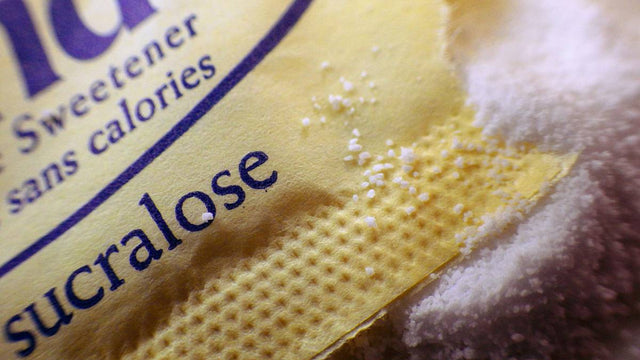I’m a caffeine addict. It just so happens, I’m also a huge fan of creatine (kre-alkalyn to be more specific, since it doesn’t have any of the negative side effects found with creatine without the loading and cycling). Taking caffeine and creatine is like putting butter on bread, they just go together. Especially, when you’re making your own pre-workout, or need an additional energy boost before you hit the heavyweights. But, according to a study published in The Journal Of Applied Physiology caffeine may actually counteract the ergogenic effects of creatine supplementation. But, before you stop adding a scoop of kre-alkalyn to your cold-brew, let’s review the facts.
Does Caffeine Cancel Out Creatine?
Caffeine and creatine are often used together in pre-workout supplements to help athletes improve performance. Hundreds of studies have investigated the efficacy of creatine supplementation with consistent improvements in strength and power during high-intensity training. Other studies investigating caffeine have been shown to help optimize endurance through improved energy levels. Thus, through independent mechanisms of action, and proven performance benefits, many leading supplement brands have created products containing and combining both ingredients. However, recent evidence suggests that caffeine may actually cancel out the ergogenic effects of creatine, making it less effective, or not effective at all. So do caffeine and creatine work together, or do they work against each other?
A study published in the Journal Of Applied Physiology investigated the effect of creatine and caffeine supplementation on muscle torque and muscle relaxation and suggests that caffeine may impede the performance effects of creatine supplementation. In a double-blind randomized cross over design, 10 subjects performed exercise tests before and after creatine supplementation, caffeine intake, creatine with caffeine intake, and/or placebo. The study found that short-term caffeine intake, but not acute caffeine intake, inhibits muscle relaxation. The negative impact of caffeine on relaxation time counteracts the beneficial effect of creatine supplementation on muscle relaxation time. In summary, the longer the relaxation time, the more your performance will suffer. The study also found that dynamic torque production was increased with creatine supplementation alone, yet found no increase with creatine and caffeine combined [R, R]
Keep in mind, this is just one study. If you look at the study design, there were a low number of study subjects and there were quite a few study design flaws. Therefore, the results would be hard to replicate. The exercise model used, was stated not to be suitable to evaluate the ergogenic effects of creatine supplementation. The results also state that the findings provide indirect evidence that muscle relaxation may be important to the ergogenic reaction of creatine. Other randomized controlled studies, with better evidence and study design, have shown that caffeine combined with creatine increases aerobic and anaerobic exercise performance [R,R,R,R].
Surveys conducted amongst Division I collegiate athletes revealed that 37% use creatine and 73% supplemented with energy drinks to improve performance, power, speed, strength, agility, and muscle gain. [R]. 89% of triathletes also reported that they intended to use caffeine either before or during their training and competitions. [R].
Does Caffeine Reduce The Effects Of Creatine: Takeaway
The evidence supporting the claim, that caffeine reduces the effects of creatine, doesn’t hold much merit. Hundreds of studies, prove the efficacy of creatine combined with caffeine, and provide substantial evidence that when supplemented together can improve short term bouts of high-intensity exercise, strength, sprint performance, endurance, and training capacity.
Thinking about supplementing your fitness with Kre-Alkalyn?
Swolverine's Kre-Alkalyn® is a patented pH correct form of creatine phosphate. With the addition of creatine phosphate (PCr) into the muscle cells, the body increases its immediate energy supply, by facilitating the production of ATP which increases power output and strength. High-intensity training programs require the body to go under strenuous aerobic and anaerobic conditions. By supplementing the body with creatine, you will induce a greater improvement in exercise endurance and athletic performance, resulting in improved times, more peak power, and stronger lifts.*
SWOLVERINE is an endurance athlete and active lifestyle brand. Made for the elite athlete, and the strong-willed our products were designed to fuel your athletic performance. We perform when you perform.
We believe that everyone can optimize not only their athletic performance but their human potential. The way we believe we can optimize performance is through transparency, clinically effective doses, and clinically proven ingredients with evidence-based outcomes. We provide the nutrients you need to power your active lifestyle.
References
Trexler, Eric T et al. “Effects of Coffee and Caffeine Anhydrous Intake During Creatine Loading.” Journal of strength and conditioning research vol. 30,5 (2016): 1438-46. doi:10.1519/JSC.0000000000001223
Doherty M, Smith PM, Davison RC, Hughes MG. Caffeine is ergogenic after supplementation of oral creatine monohydrate. Med Sci Sports Exerc. 2002;34(11):1785-92.
Lee CL, Lin JC, Cheng CF. Effect of caffeine ingestion after creatine supplementation on intermittent high-intensity sprint performance. Eur J Appl Physiol. 2011;111(8):1669-77.
Fukuda DH, Smith AE, Kendall KL, Stout JR. The possible combinatory effects of acute consumption of caffeine, creatine, and amino acids on the improvement of anaerobic running performance in humans. Nutr Res. 2010;30(9):607-14.
Spradley BD, Crowley KR, Tai CY, et al. Ingesting a pre-workout supplement containing caffeine, B-vitamins, amino acids, creatine, and beta-alanine before exercise delays fatigue while improving reaction time and muscular endurance. Nutr Metab (Lond). 2012;9:28.
Froiland K, Koszewski W, Hingst J, Kopecky L. Nutritional supplement use among college athletes and their sources of information. Int J Sport Nutr Exerc Metab. 2004;14:104–120. [PubMed] [Google Scholar]













